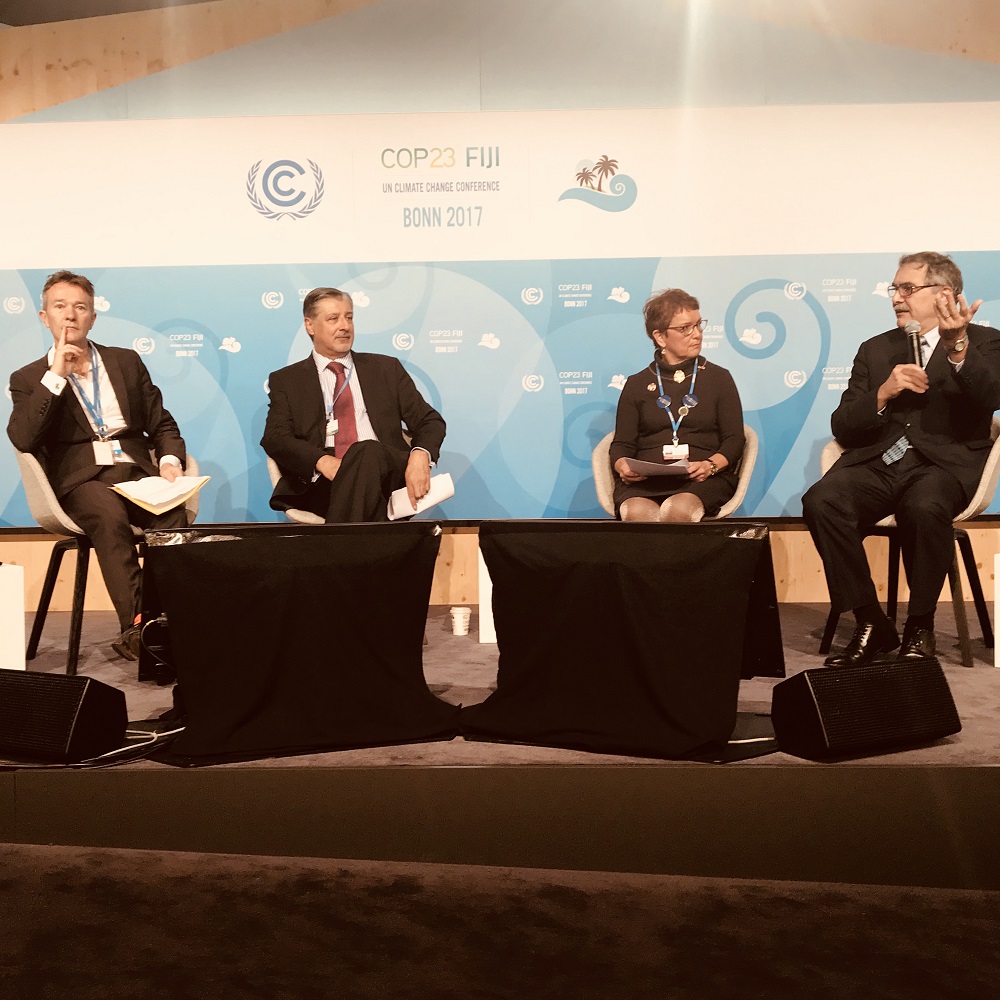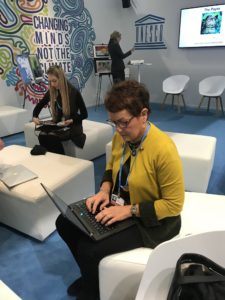Dear Soroptimists,
Last Sunday I celebrated my first 100 days as your SI President and as you know – I am a water woman. Water and climate change are of course very strongly related. Water scarcity (droughts) and water abundance (floods), which bring about so much suffering both directly and indirectly, can be caused by climate change and water (mis)management can adversely affect climate change. During the 12 days of this year’s UN Climate Change Conference (COP23) there will be a WATER ACTION DAY on Friday, November 10th, during which I shall report on the progress of The Global Framework on Water Scarcity in Agriculture, (WASAG). As President of Women for Water Partnership (WfWP) and vice chair of WASAG, and of course as SI President, I shall explain why women should be seen as key allies and the access to sustainable behavioral change in the water dimensions of climate adaptation.

Image: Mariet Verhoef-Cohen – Press Conference COP23
Climate change and the SDGs
In the advocacy work of SI, we focus on the priority area of the 17 Sustainable Development Goals (SDGs) set in 2015 by the UN as the agenda for the next 15 years. These SDGs are linked to one another very closely. Climate change affects SDG 1 (No Poverty), SDG 2 (Zero Hunger), SDG 5 (Gender Equality), and SDG 6 (Clean Water and Sanitation) directly. Furthermore, SDG 12 (Responsible Consumption and Production), SDG 13 (Climate Action), and SDG 17 (Partnerships for the Goals) will all influence climate change. SDG 5 (Gender Equality) is of course linked to each SDG, and is key to Soroptimists.

Image: Mariet Verhoef-Cohen
WfWP uses water and agriculture as an entry point to women’s empowerment and to improve equitable access to water for all, for all uses. Women traditionally have vast experience in the water and agricultural sector. Ensuring women’s empowerment and engagement at all levels will encourage them to reach their potential as agents of change. The Global Framework WASAG is aimed at finding solutions to alleviate the fate of vulnerable livelihoods and enhancing their resilience through sustainable, affordable and innovative interventions.
More food with less water
Eduardo Mansur, Director of the Land and Water Division at FAO stated: “We must produce more food with less water.” As your President, I encourage you to support projects that work in the fields mentioned above, such as my President’s Appeal: Women, Water, and Leadership. I am confident that if we continue working together in the way that we are, SI, WfWP, Global Framework WASAG and many other parties, bringing together key players from across the globe to design and implement integrated strategies, we will indeed succeed in producing more food with less water and we can prevent water scarcity from setting back our ambitious vision of a future of peace and plenty for all.
Lead Image courtesy of United Nations Climate Change

